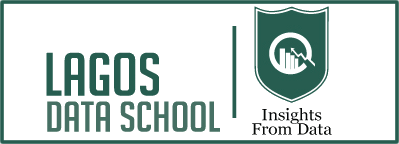Description
The Business Analysis Certificate Program will equip you with the tools to audit the needs and propose solutions to challenges within your organization, Business Analysis is crucial skills for successful project delivery and effecting organizational change. As a professional looking to be an agent of change in the corporate, government or non-profit organization, this certificate program will give you a foundation in all areas covered in the most recent version of the International Institute of Business Analysis.
Course Content
Module 1: Introduction
Purpose of the course.
What is Business Analysis?
Who is a Business Analyst?
Structure of the course
Module 2: Business Analysis Key Concepts
The Business Analysis Core Concept ModelTM
Key Terms
Requirements Classification Schema
Stakeholders
Requirements and Designs
Module 3: Business Analysis Planning and Monitoring
Plan Business Analysis Approach
Plan Stakeholder Engagement
Plan Business Analysis Governance
Plan Business Analysis Information Management
Identify Business Analysis Performance Improvements
Module 4: Elicitation and Collaboration
Prepare for Elicitation
Conduct Elicitation
Confirm Elicitation Results
Communicate Business Analysis Information
Manage Stakeholder Collaboration
Module 5: Requirements Life Cycle Management
Trace Requirements
Maintain Requirements
Prioritize Requirements
Assess Requirements Changes
Approve Requirements
Module 6: Strategy Analysis
Analyze Current State
Define Future State
Assess Risks
Define Change Strategy
Module 7: Requirements Analysis and Design Definition
Specify and Model Requirements
Verify Requirements
Validate Requirements
Define Requirements Architecture
Define Design Options
Analyze Potential Value and Recommend Solution
Module 8: Solution Evaluation
Measure Solution Performance
Analyze Performance Measures
Assess Solution Limitations
Assess Enterprise Limitations
Recommend Actions to Increase Solution Value
Module 9: Underlying Competencies
Analytical Thinking and Problem Solving
Behavioural Characteristics
Business Knowledge
Communication Skills
Interaction Skills
Tools and Technology
Module 10: Techniques
Acceptance and Evaluation Criteria
Backlog Management
Balanced Scorecard
Benchmarking and Market Analysis
Brainstorming
Business Capability Analysis
Business Cases
Business Model Canvas
Business Rules Analysis
Collaborative Games
Concept Modelling
Data Dictionary
Data Flow Diagrams
Data Mining
Data Modelling
Decision Analysis
Decision Modelling
Document Analysis
Estimation
Financial Analysis
Focus Groups
Functional Decomposition
Glossary
Interface Analysis
Interviews
Item Tracking
Lessons Learned
Metrics and Key Performance Indicators (KPIs)
Mind Mapping
Non-Functional Requirements Analysis
Observation
Organizational Modelling
Prioritization
Process Analysis
Process Modelling
Prototyping
Reviews
Risk Analysis and Management
Roles and Permissions Matrix
Root Cause Analysis
Scope Modelling
Sequence Diagrams
Stakeholder List, Map, or Personas
State Modelling
Survey or Questionnaire
SWOT Analysis
Use Cases and Scenarios
User Stories
Vendor Assessment
Workshops
Module 11: Perspectives
The Agile Perspective
The Business Intelligence Perspective
The Information Technology Perspective
The Business Architecture Perspective
The Business Process Management Perspective
